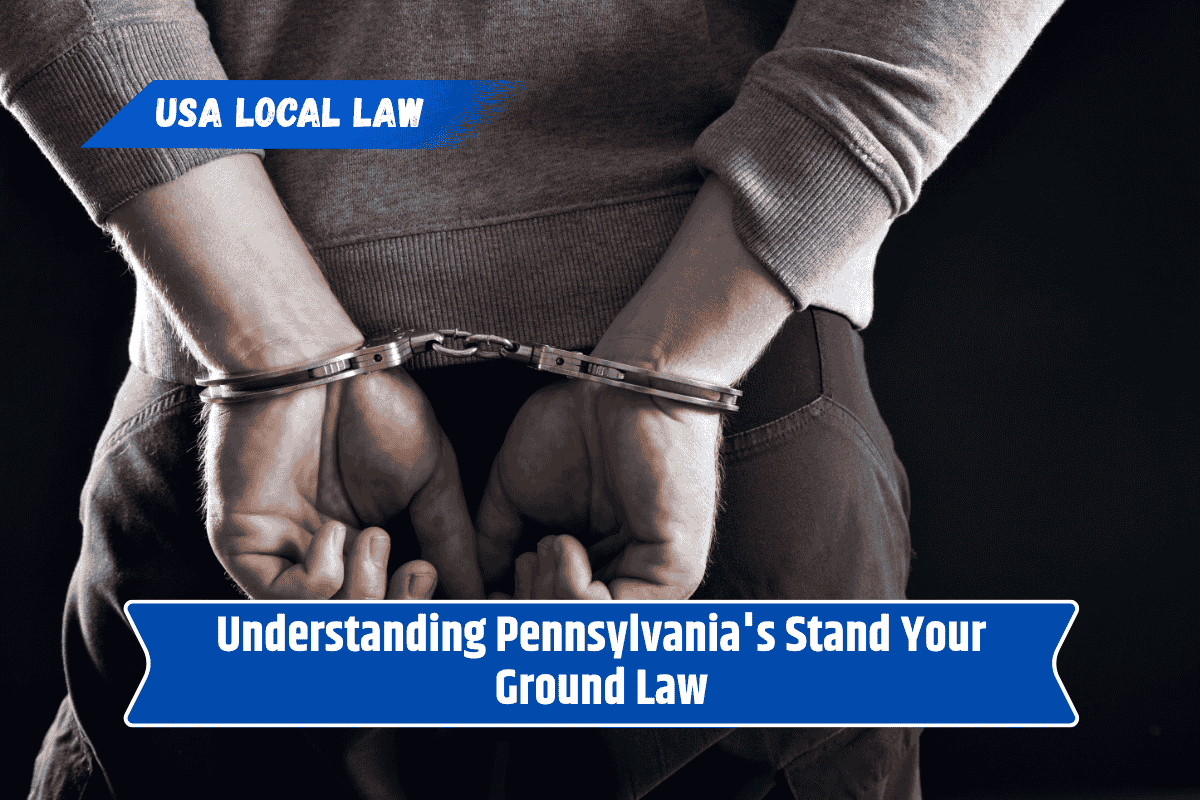Self-defense laws can be confusing, especially when emotions are high during dangerous situations. One of the most talked-about self-defense laws is the “Stand Your Ground” law.
In Pennsylvania, this law gives people the right to protect themselves without having to run away first, but only under certain conditions. In this guide, we’ll break it down into simple language so you can understand when and how the law applies.
What Is the Stand Your Ground Law?
The Stand Your Ground law allows a person to use force—including deadly force—if they believe they are in danger of death or serious injury. The key part of the law is that they do not have to retreat before defending themselves, as long as they are in a place they are legally allowed to be.
This law is meant to protect people who act in self-defense during life-threatening situations.
Where Does the Law Apply in Pennsylvania?
In Pennsylvania, the Stand Your Ground law applies in these situations:
You are not committing a crime.
You are in a place where you have a legal right to be (like your home, your car, or a public area).
You believe that using force is necessary to protect yourself or someone else from death, serious injury, or a violent crime (like kidnapping or rape).
This law applies both inside your home and outside—but only if all conditions are met.
How Is It Different from the Castle Doctrine?
The Castle Doctrine is a part of self-defense law that applies when you’re inside your own home or vehicle. It allows you to use deadly force without needing to prove that you tried to escape.
The Stand Your Ground law is a step further. It lets you defend yourself outside your home too—like in a park, on the street, or in a store—if you’re legally there and not doing anything illegal.
So:
Castle Doctrine = Inside your home or car
Stand Your Ground = Anywhere you’re legally allowed to be
What If You’re Confronted in Public?
Let’s say someone attacks you while you’re walking through a public park. If you fear for your life and you’re not doing anything wrong, the Stand Your Ground law may protect you if you fight back—even if you didn’t try to run away first. But you must truly believe that you or someone else was in serious danger.
That belief must also be reasonable. If the threat wasn’t serious or life-threatening, using deadly force could still get you in legal trouble.
Can You Use Stand Your Ground in a Verbal Argument?
No. The law only protects you if there’s a physical threat of death or serious injury. Just being in a loud argument or feeling disrespected is not a legal reason to use force. There has to be an immediate and real threat.
What Does the Law Say About Firearms?
You can use a legally owned firearm under the Stand Your Ground law, but you must follow all gun laws in Pennsylvania. If you’re carrying a gun without a license or using it in an illegal way, you could face criminal charges—even if you were trying to defend yourself.
What Happens After a Self-Defense Incident?
If you use force to defend yourself, the police will investigate. You may still be arrested or questioned. The courts will decide if your actions were reasonable based on the law.
Things that will be considered include:
Was the threat serious and immediate?
Were you legally present at the location?
Were you doing anything illegal?
Did you use more force than necessary?
When Doesn’t the Law Apply?
The Stand Your Ground law does not apply if:
You started the fight or provoked the other person.
You were committing a crime during the event.
You used force when there was no real or serious threat.
In these cases, you could lose legal protection and face charges like assault or even homicide.
Pennsylvania’s Stand Your Ground law is designed to protect people who defend themselves during dangerous situations, as long as they are acting legally and reasonably.
The key points are: you must be in a legal place, not doing anything illegal, and truly believe that your life or someone else’s is in serious danger. Always remember, using force is a serious decision, and the law is there to protect—not excuse—violence without real cause.
